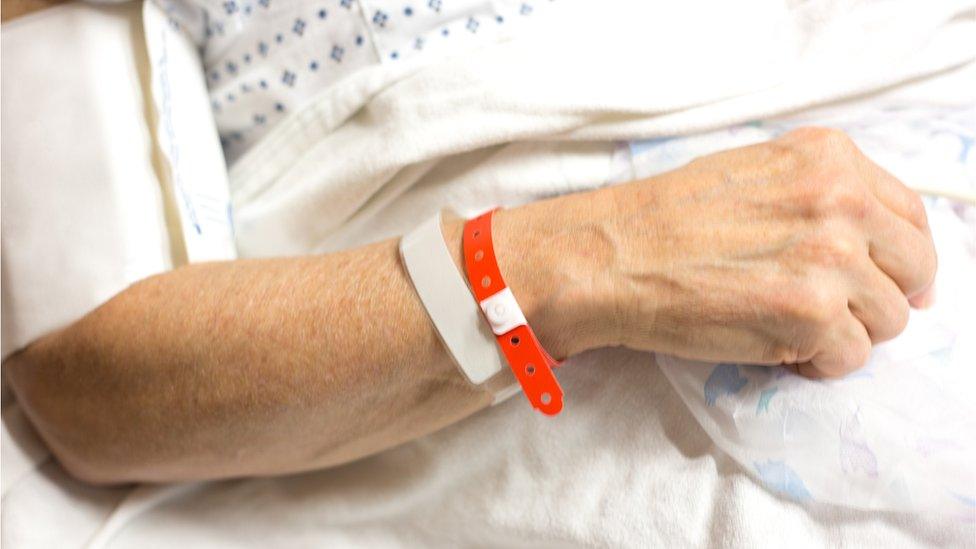Coronavirus: Concern over Glasgow's QEUH super hospital hand hygiene
- Published
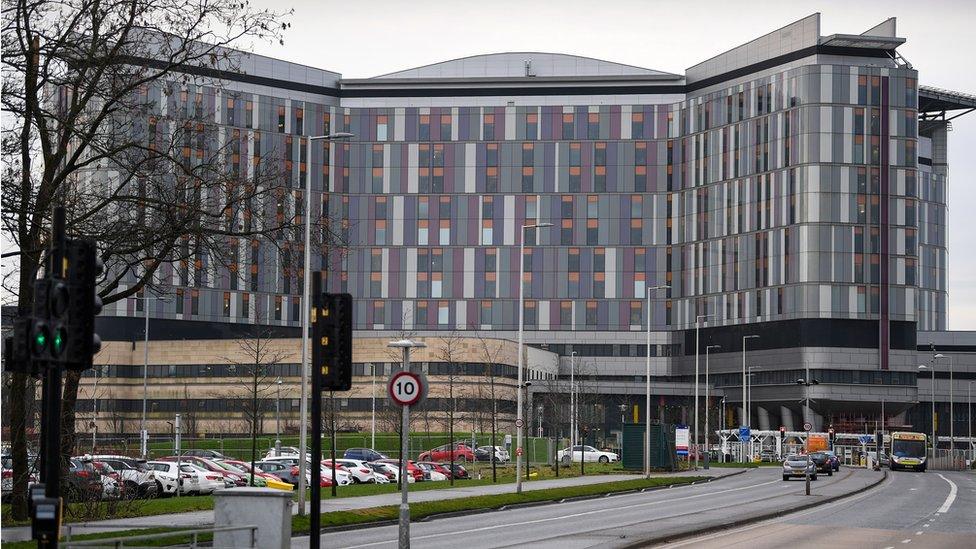
Dr Henderson said hand sanitisers were not being sign-posted in the main entrance of the hospital
A senior doctor has raised concerns over hand hygiene at Scotland's largest hospital.
Dr Fiona Henderson, who works as a consultant anaesthetist at the Queen Elizabeth University Hospital in Glasgow, said hand sanitisers were not clearly sign-posted at main public entrances.
She also said some supermarkets were currently doing a better job at cleaning public spaces.
The hospital's medical director has said he will look into installing better signs.
Dr Henderson also raised concerns about people entering the hospital and not being compelled to use hand sanitisers.
'Super, super spreader'
She told BBC Scotland's Drivetime programme: "I've never done anything like this before but I just absolutely have to speak out about the standard of basic infection control at the Queen Elizabeth.
"There's no enforcement of hand hygiene. What we need is manned hand-gel stations."
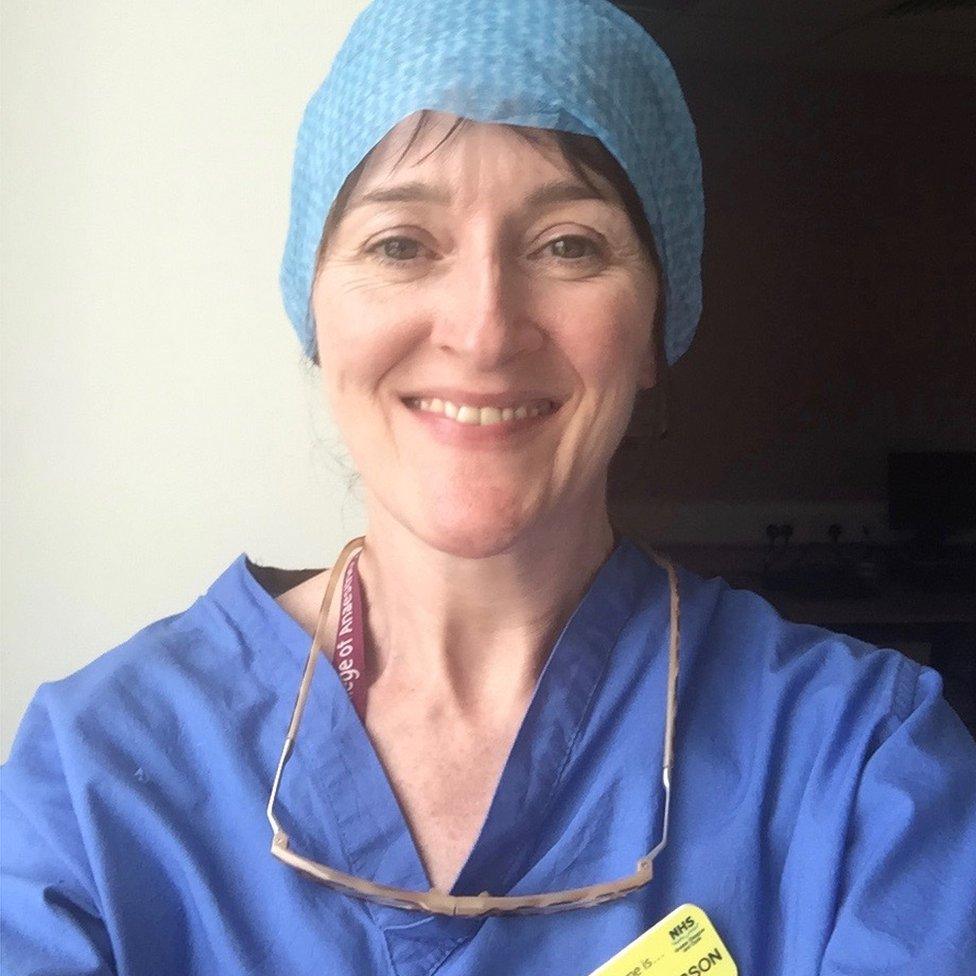
Dr Henderson said supermarkets were currently doing a better job at cleaning public spaces
She said the hospital, which can hold up to a thousand patients, was a "super, super, spreader right now".
"As I walked into Sainsbury's there was a man cleaning the handle of my trolley - now it's a sad state of affairs that Sainsbury's are doing it better than the NHS."
'Protective gear'
Dr Henderson said a hand gelling station in the main entrance of the adult hospital was "tucked away" by Marks and Spencers and that no-one was using it.
She said she understood the hospital didn't have the staff to create manned hand-gelling stations, but she called on the hospital's executive team to "empower volunteers on social media".
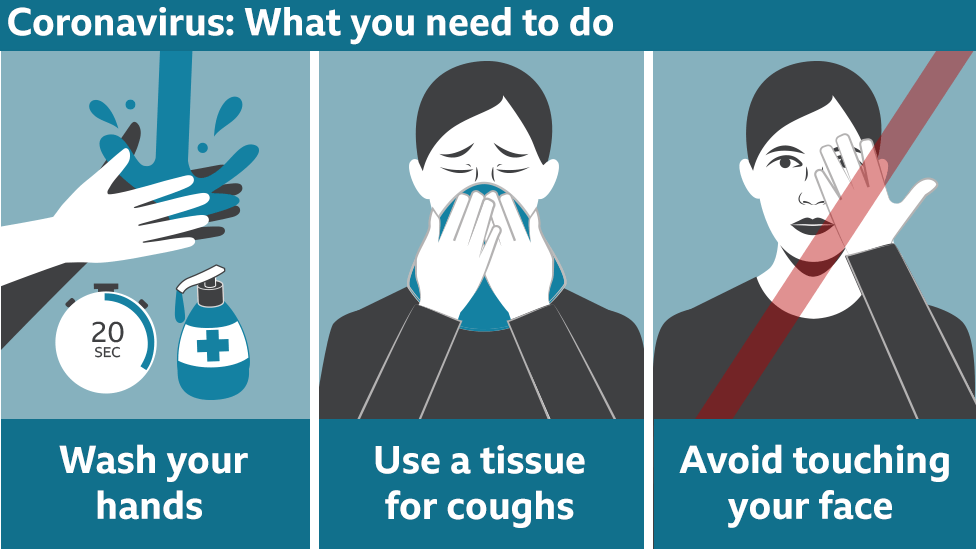
"Similarly, we don't have the cleaners. We need an army of cleaners going round keeping all the public areas absolutely spotless, we could equip these people with appropriate protective gear.
"The mere presence of these people would alter the behaviour of the public and staff coming through the doors."
Dr Scott Davidson, deputy medical director of acute services, said: "We are aware of the concerns raised by one of my colleagues and have written to her directly to reassure her of the measures we are taking in response to Covid-19."
Dr Davidson said there was a significant amount of work and effort to address what was a "developing situation".
He added: "We are taking a wide range of measures across all our healthcare facilities to ensure the spread of the virus is minimised."
These include;
Introducing strict visiting arrangement
Limiting children's visits except in exceptional circumstances
Reducing elective treatment and outpatient activity
Introducing remote consultations
Introducing a presence at the doors of four Emergency Departments to manage attendances and redirect patients to more appropriate services.
Dr Davidson said hand sanitisers were strategically placed across the hospital to maximise their benefit for staff and patients.
"They are outside all ward entrances, outside rooms and inside rooms and in critical areas. There are also a number of areas where they are accessible to both staff and patients across the main atrium at the QEUH."
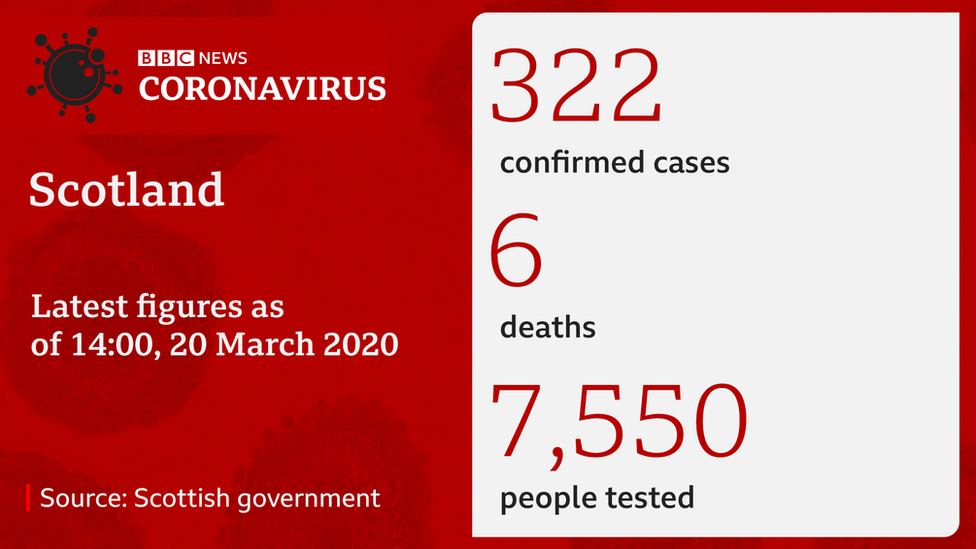
A spokeswoman for Greater Glasgow and Clyde health board said: "Our cleaning compliance is regularly monitored internally and reported to our Board. It is also monitored externally by Health Facilities Scotland who report the latest data on their website. The latest published data shows the Queen Elizabeth University Hospital above the 90% compliance at 94.1%.
"All our hospitals also receive unannounced visits from Health Improvement Scotland and their report published in February on the Queen Elizabeth University Hospital positively recognised the hospital for its cleanliness and infection control measures."

A SIMPLE GUIDE: What are the symptoms?
AVOIDING CONTACT: Should I self-isolate?
LOOK-UP TOOL: Check cases in your area
MAPS AND CHARTS: Visual guide to the outbreak
VIDEO: The 20-second hand wash

- Published19 March 2020
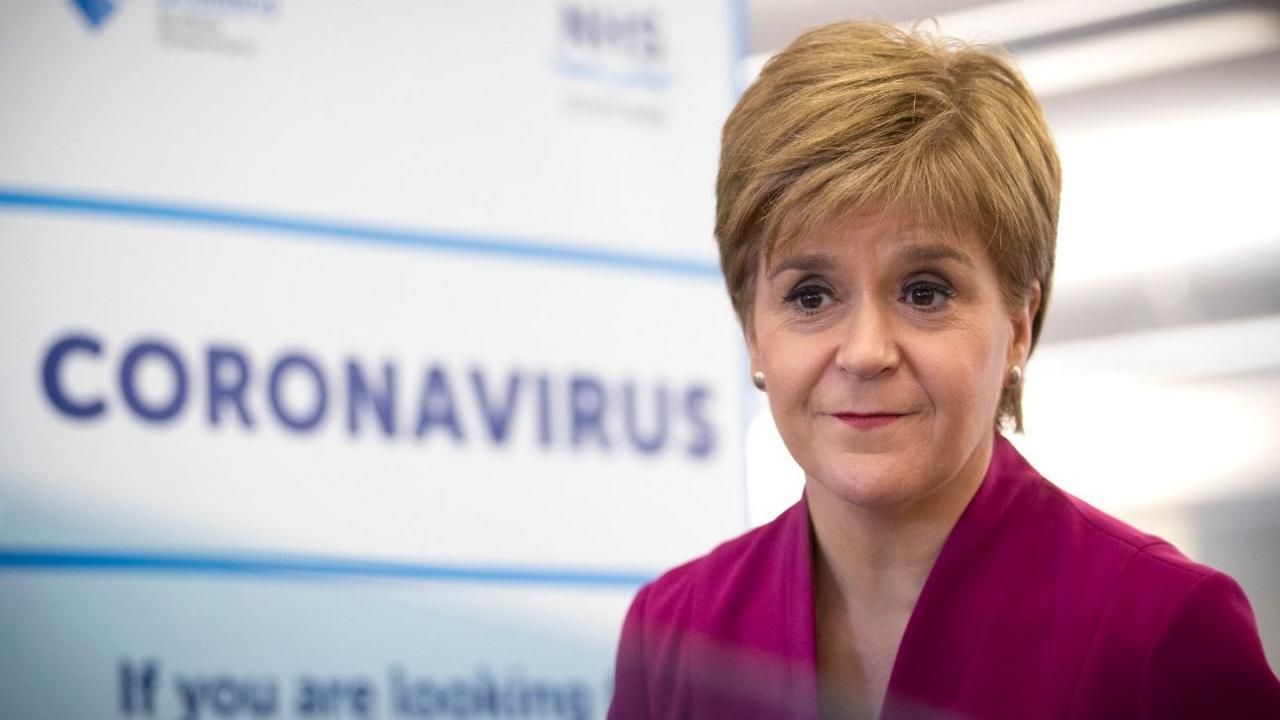
- Published16 March 2020

- Published6 October 2021

- Published13 March 2020
